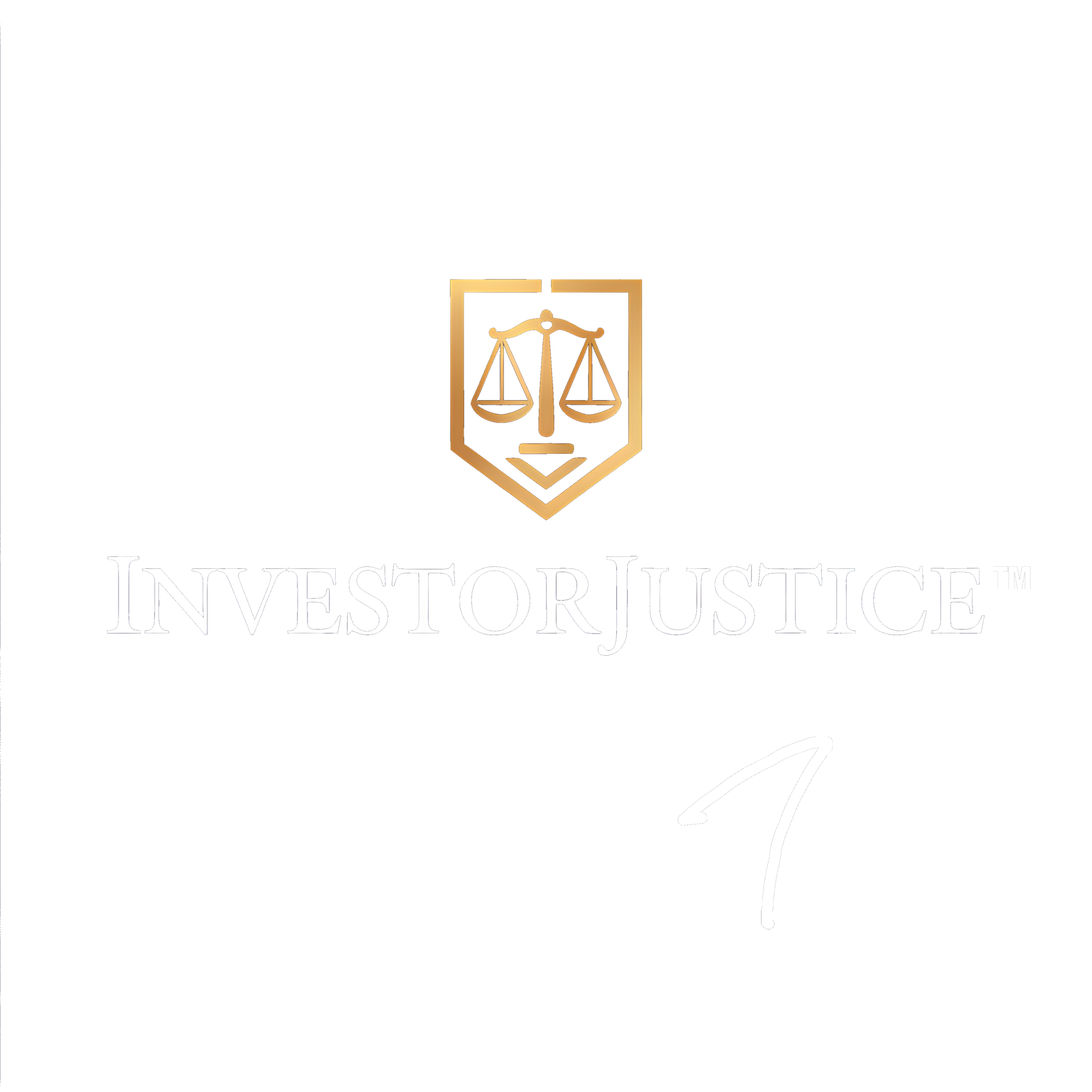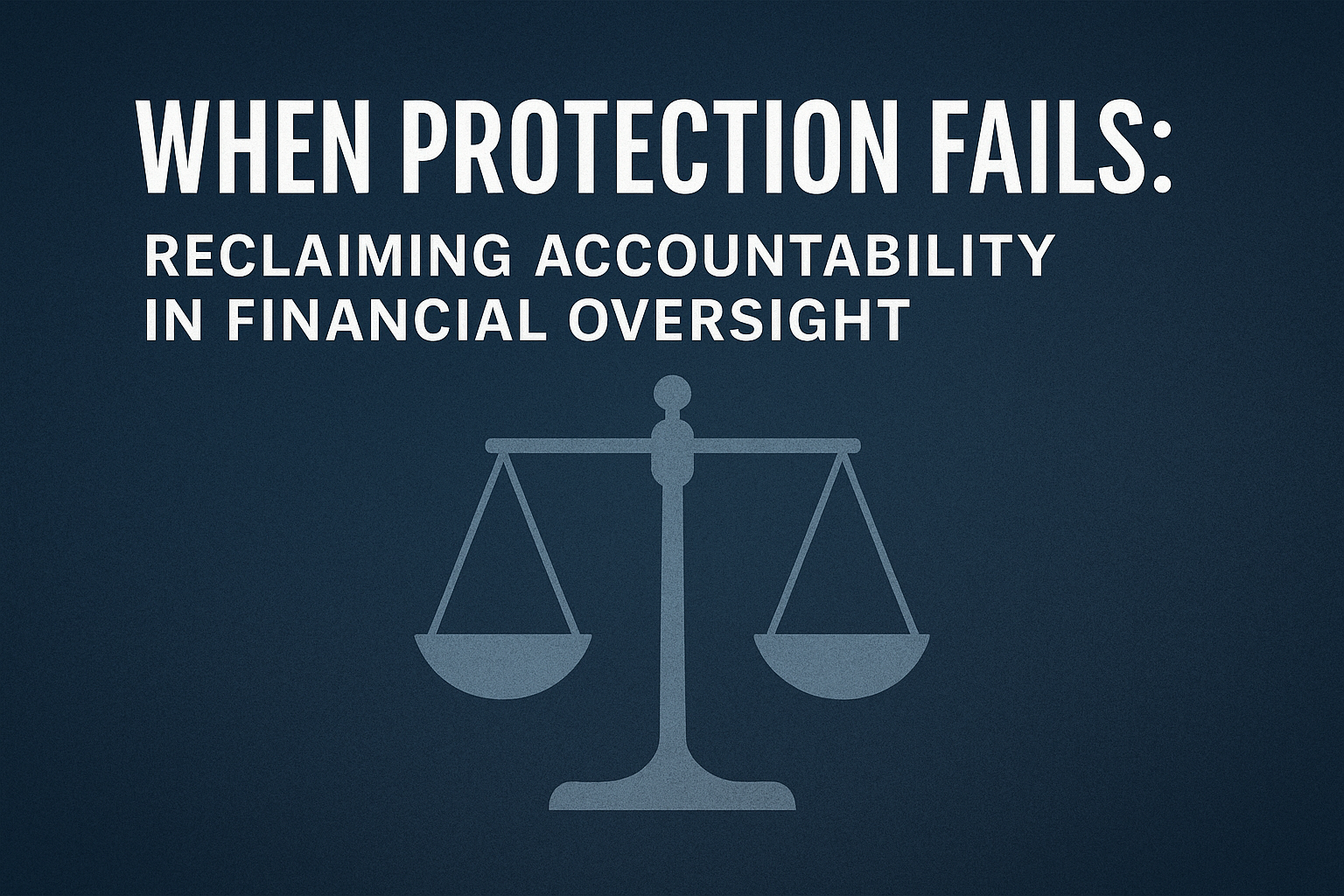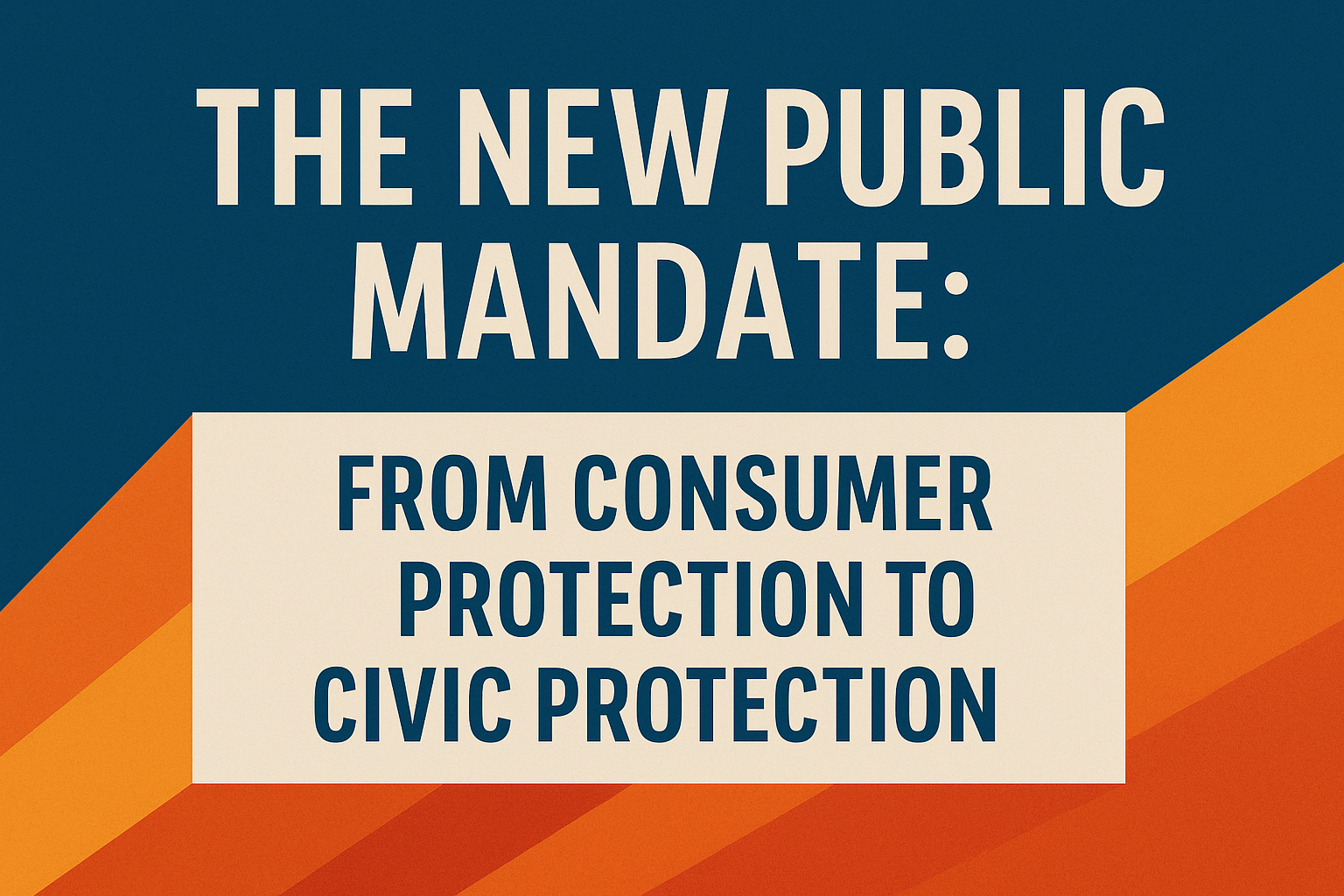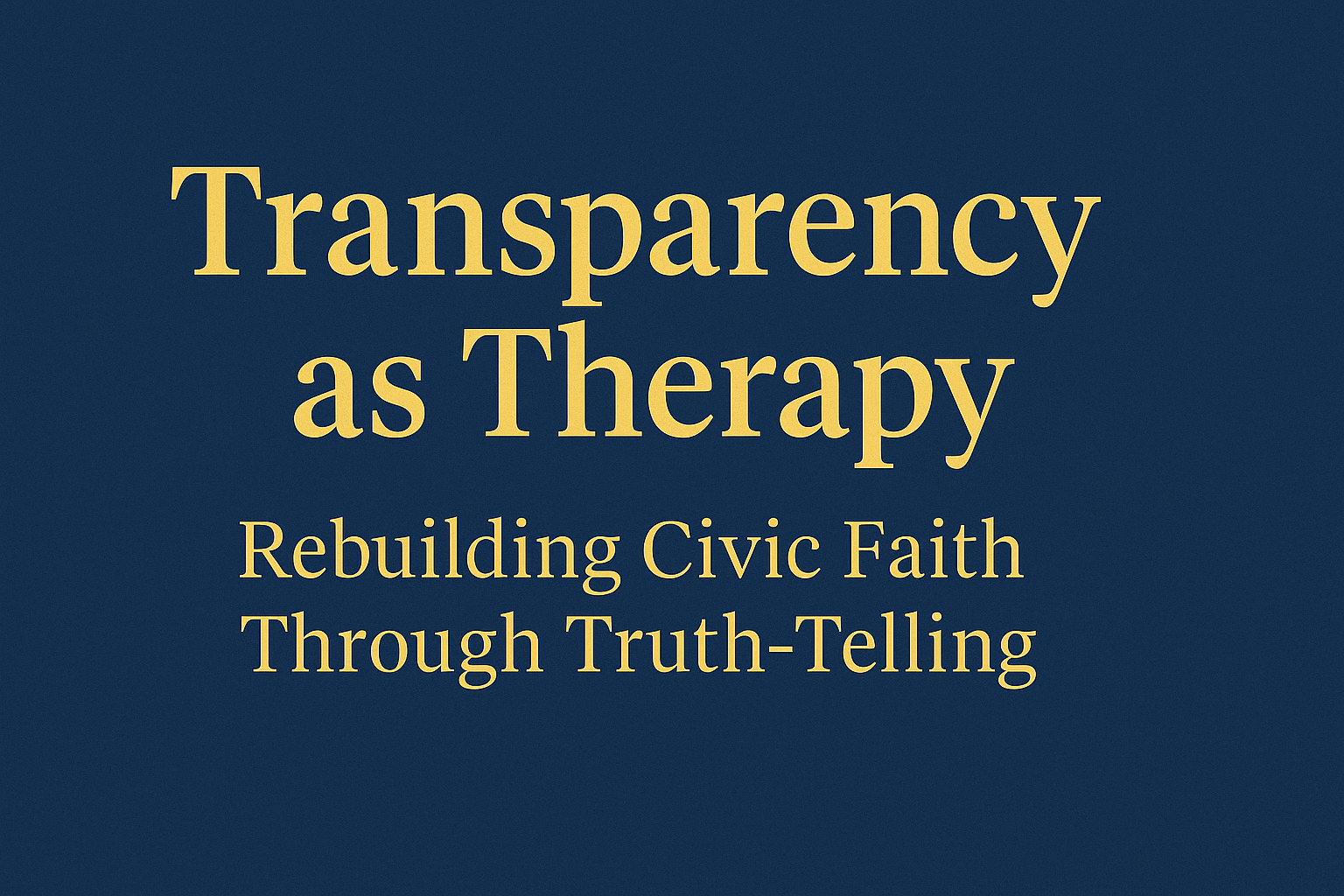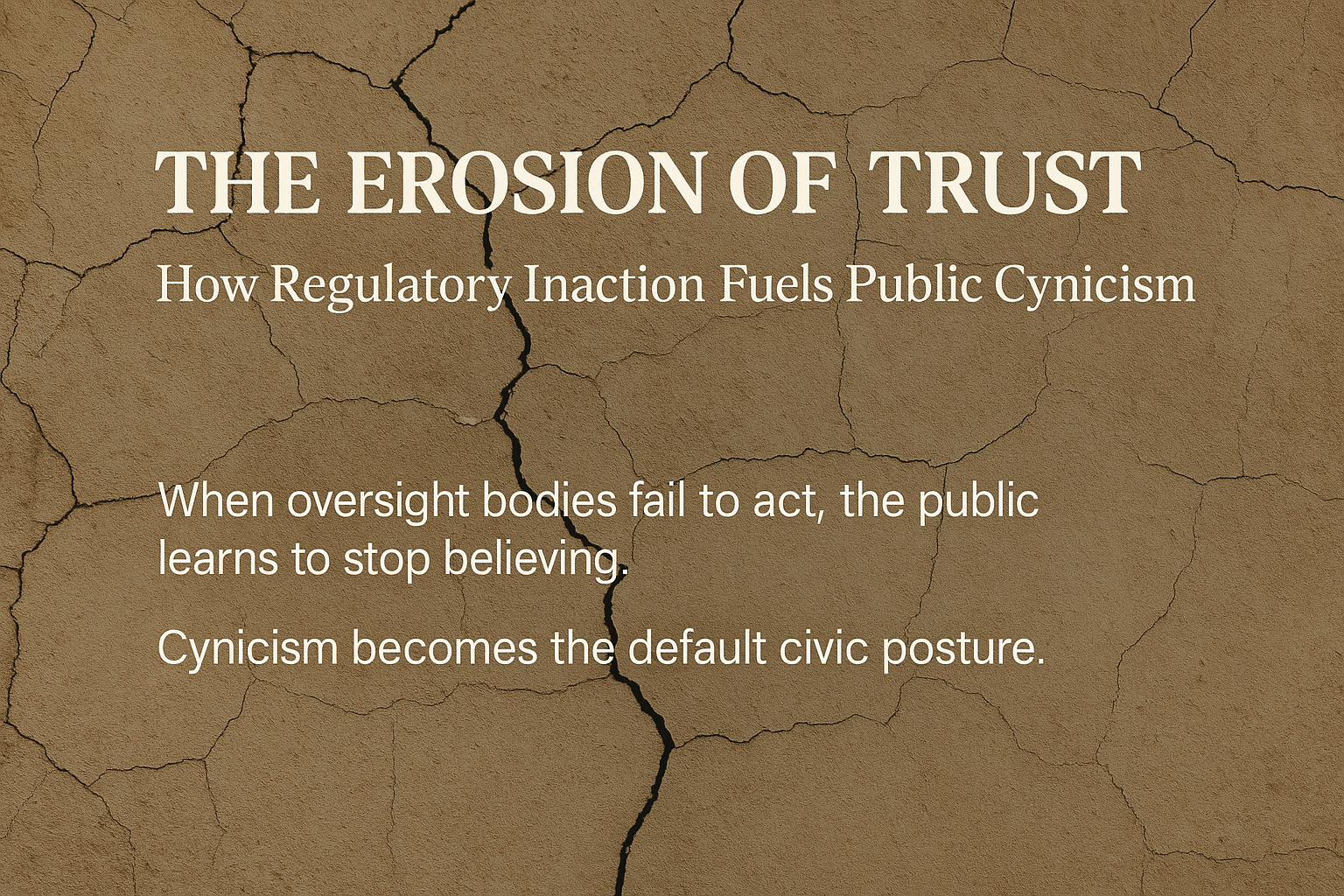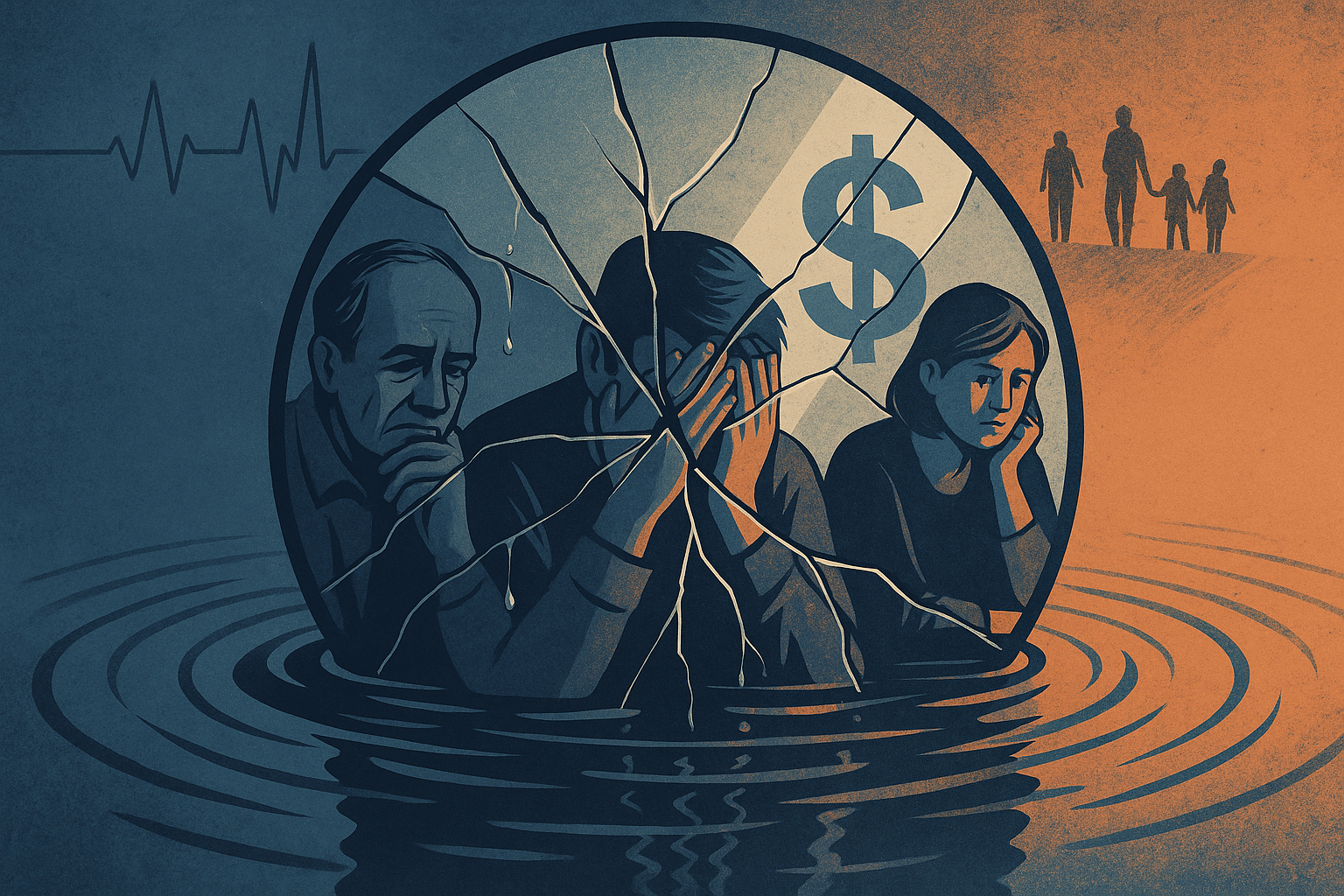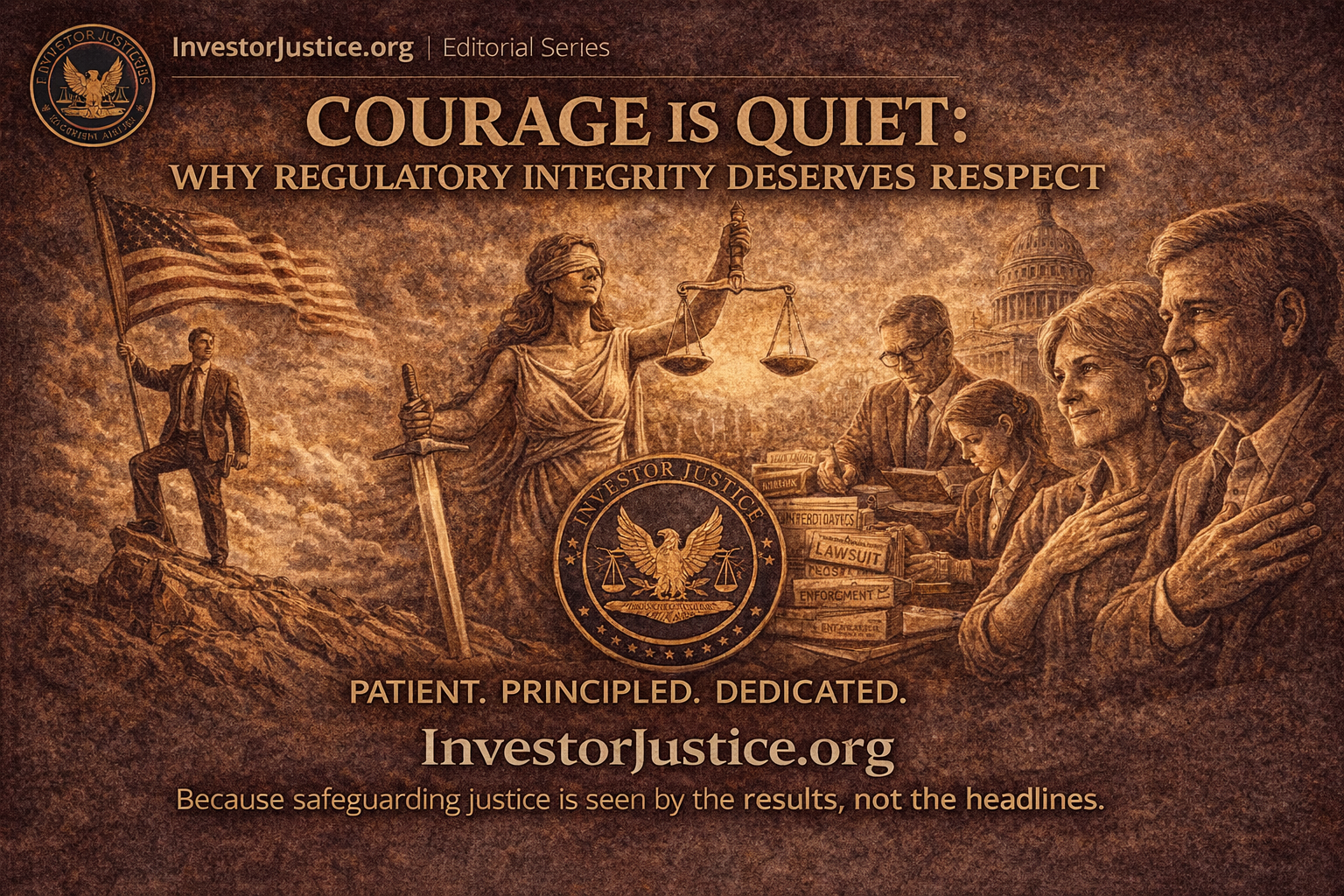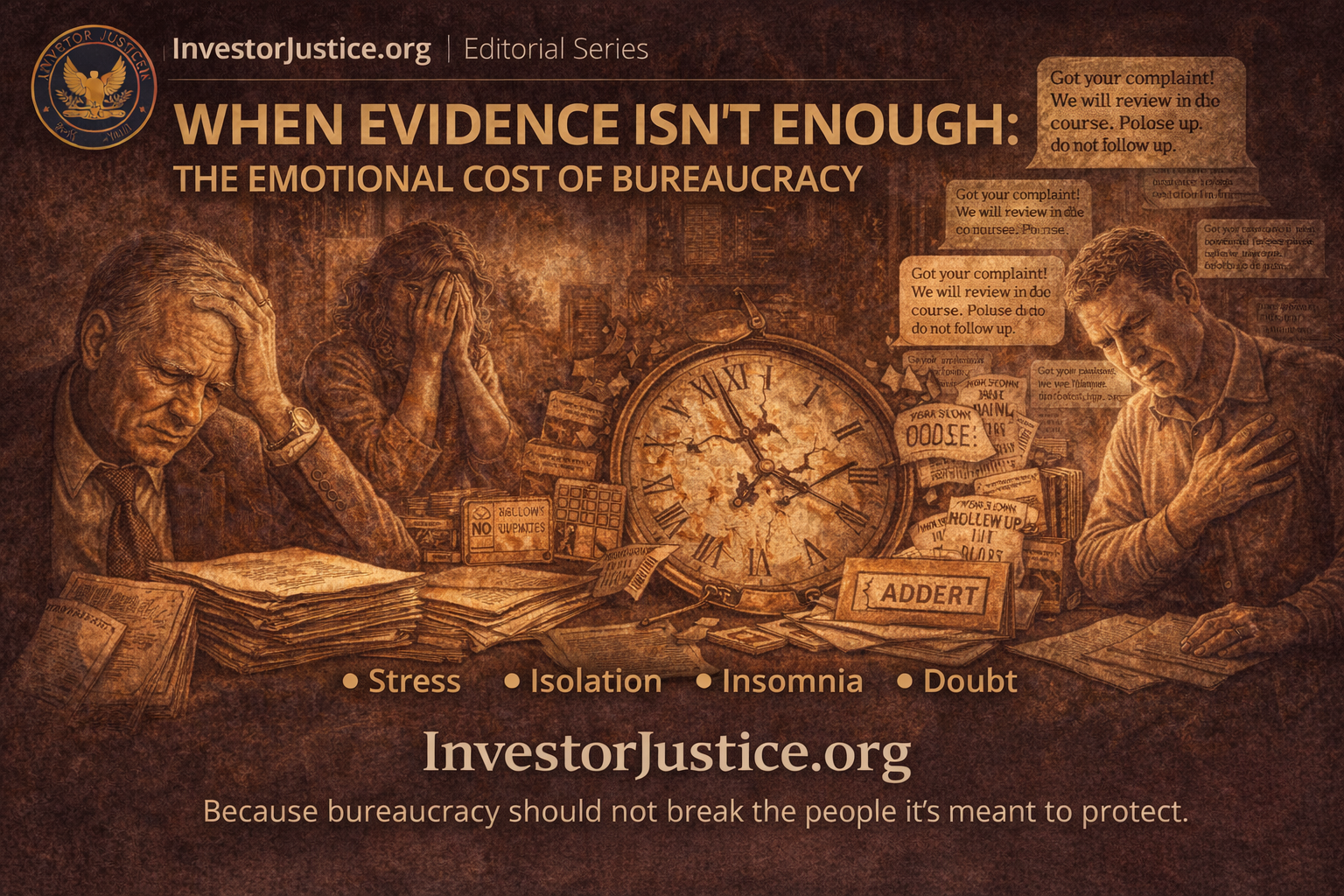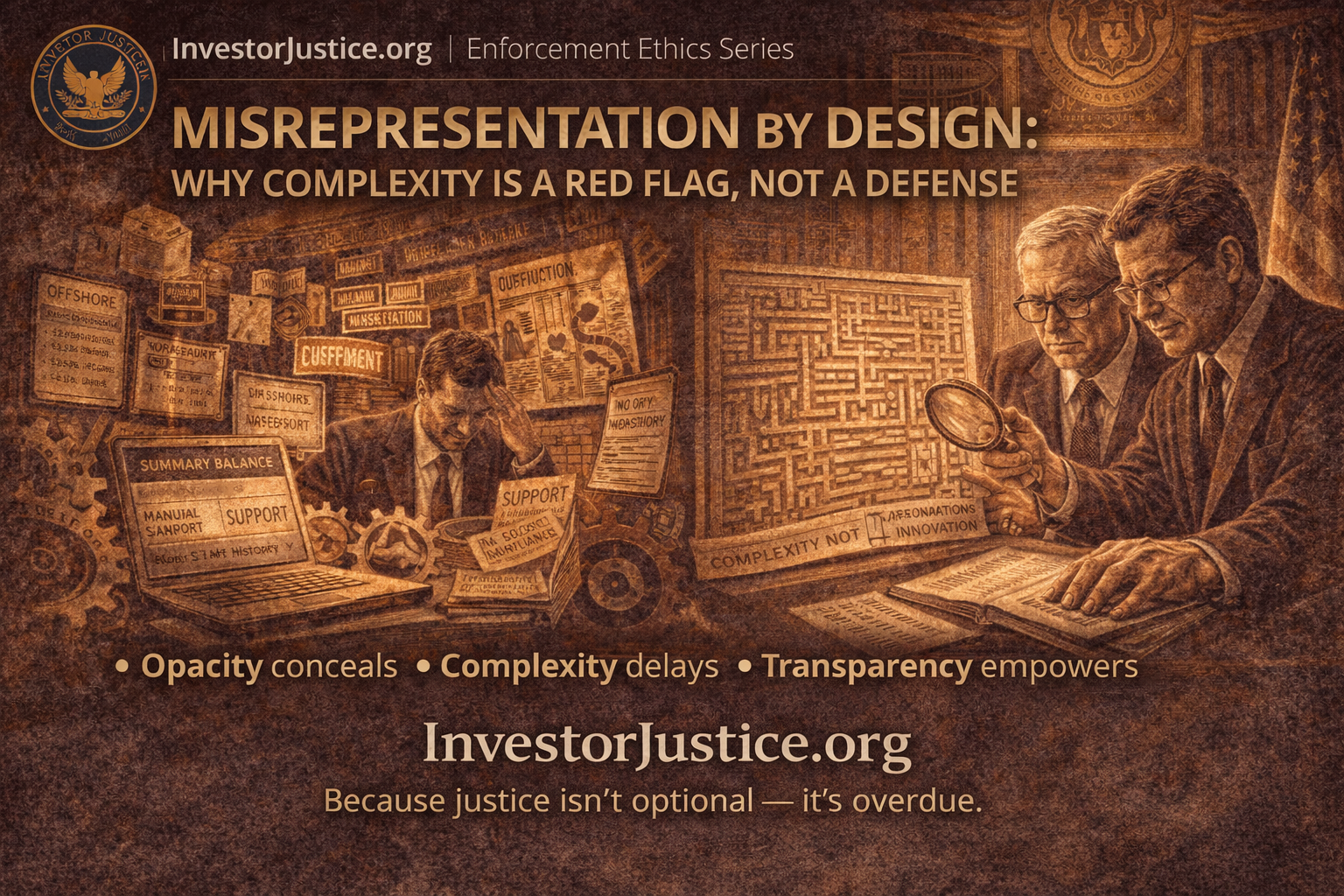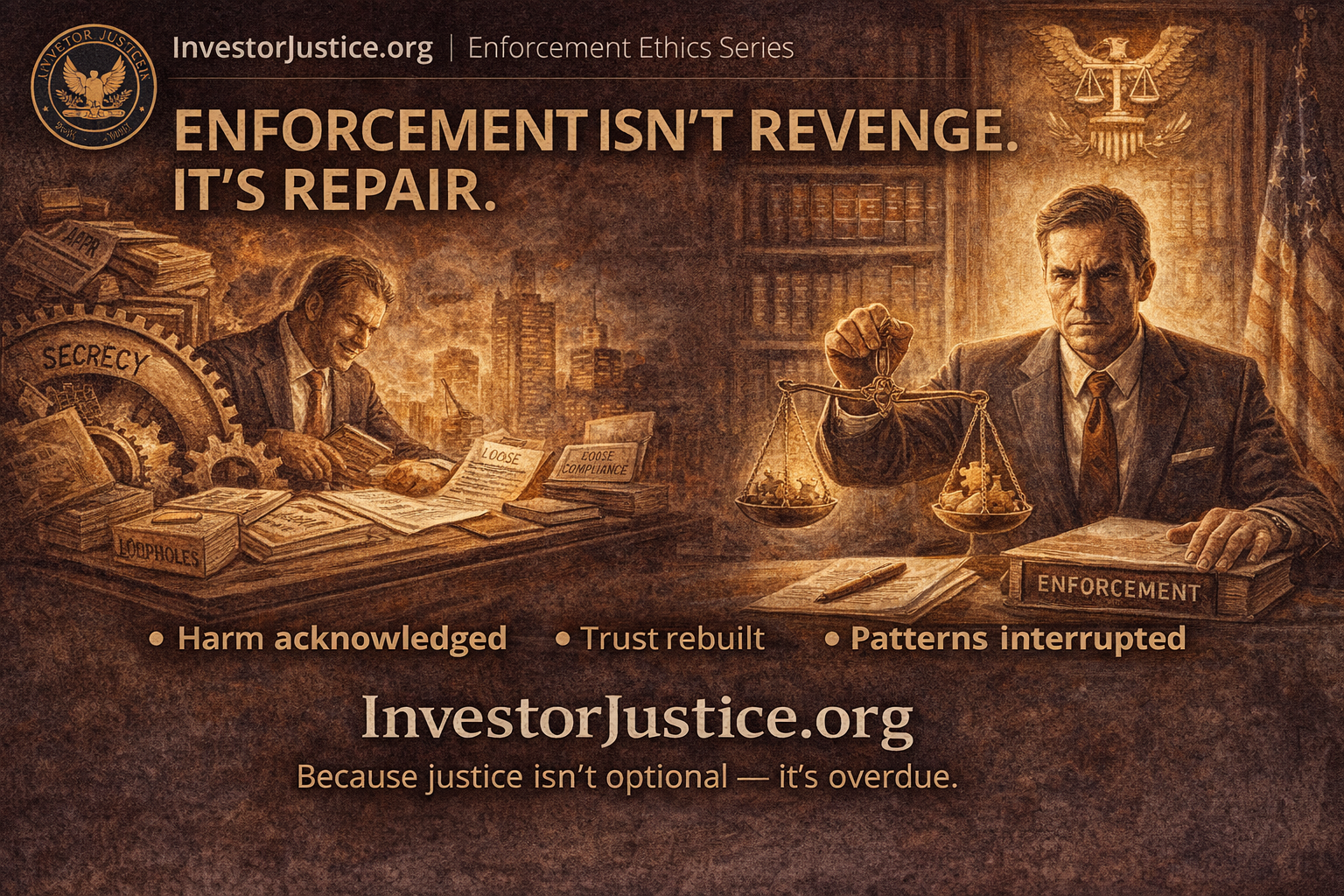Table of Contents
InvestorJustice.org | Civic Relevance Series
Oversight is not protection if it never reaches the people who need it.
Regulatory courage begins when agencies confront their own inertia.
It requires admitting that frameworks designed decades ago cannot contain modern harm.
Each time enforcement trails behind innovation, the gap grows wider and public harm grows deeper.
The Problem
Most financial enforcement still functions as post-crisis cleanup, not prevention.
By the time penalties are issued, victims have lost homes, health, and hope.
Restitution arrives years too late, if at all.
Every “record settlement” announced without actual restitution is another monument to delay.
For those living the consequences, fines mean nothing if the harm remains unpaid.
When protection fails, it is not a failure of law, it is a failure of will.
The Opportunity
Reclaiming accountability starts with rethinking purpose.
Enforcement should not simply punish; it should prevent.
To reclaim accountability, regulators must invert their timeline:
- Detect earlier.
- Disclose faster.
- Settle transparently.
Public confidence will follow when action precedes crisis, not the other way around.
Transparency turns compliance into education and transforms punishment into prevention.
The Mandate
Accountability is not the same as blame.
It is the ongoing willingness to confront truth in public, even when that truth is uncomfortable.
Institutions that acknowledge failure earn something rare in governance — moral authority.
Those that hide it lose legitimacy entirely.
The new regulatory mandate must be grounded in institutional courage, the courage to act early, disclose openly, and repair publicly.
That is how oversight becomes protection again.
